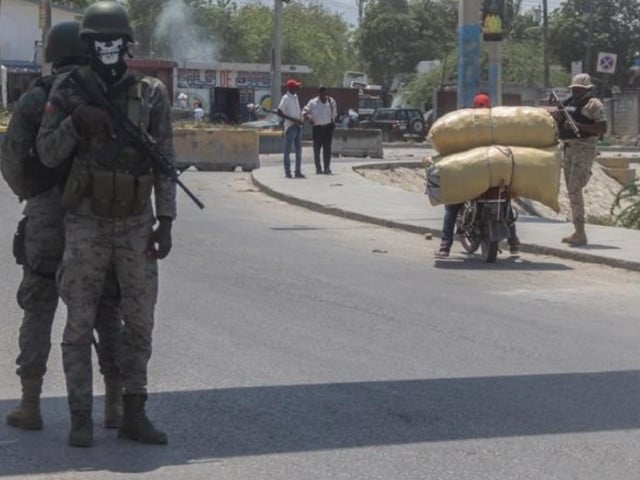Haiti’s gang violence is spiraling out of control as the UN-backed mission aimed at restoring order remains critically underfunded, warned UN human rights expert William O’Neill on Friday.
At a press conference in Port-au-Prince, O’Neill pointed out that gangs are extending their reach into new areas while weapons continue to flow into the country despite an international embargo. “Areas previously unaffected by gang violence are now directly impacted, worsening the already dire situation marked by rising inflation, shortages of basic goods, and increasing numbers of internally displaced people,” he stated.
He emphasized the growing humanitarian crisis, with many Haitians facing severe consequences such as widespread displacement, sexual violence, and a lack of access to essential services. The UN-backed mission, led by 400 Kenyan police officers since June, has deployed less than 25% of the promised forces, O’Neill revealed.
With just under two weeks left in its initial one-year mandate, the mission also faces significant challenges due to inadequate equipment and resources, hindering its effectiveness in curbing rampant violence. Originally, over 2,900 troops were pledged by several countries, including Antigua, Barbados, Bangladesh, Belize, Benin, Chad, the Bahamas, and Jamaica, to support Haitian police. However, the deployment remains far below expectations.
O’Neill stressed the urgent need to ramp up efforts to address the crisis, stating that while solutions exist, immediate action is necessary to prevent further deterioration of the situation. UN reports indicate that between April and June 2024, over 1,379 individuals were either killed or injured in gang-related violence, with 428 reported kidnappings.
The rise in violence has profoundly affected Haitian society, with O’Neill warning that children are being forcibly recruited into gangs and used in attacks against public institutions and police forces. “Youth are losing hope for a better future,” he lamented, highlighting the long-term societal damage inflicted by the unchecked violence.
In addition to security concerns, Haiti’s health system is in dire condition, with less than one-third of services operating normally. Nearly 5 million Haitians now face hunger as the country’s economic situation continues to deteriorate.
O’Neill believes that progress can be achieved if international efforts are intensified and the necessary resources are provided to support the UN mission. However, without additional funding and complete troop deployment, the violence is likely to persist, further deepening Haiti’s humanitarian crisis.



